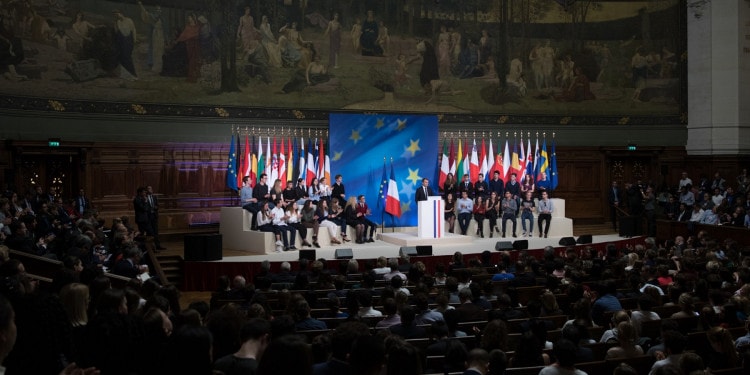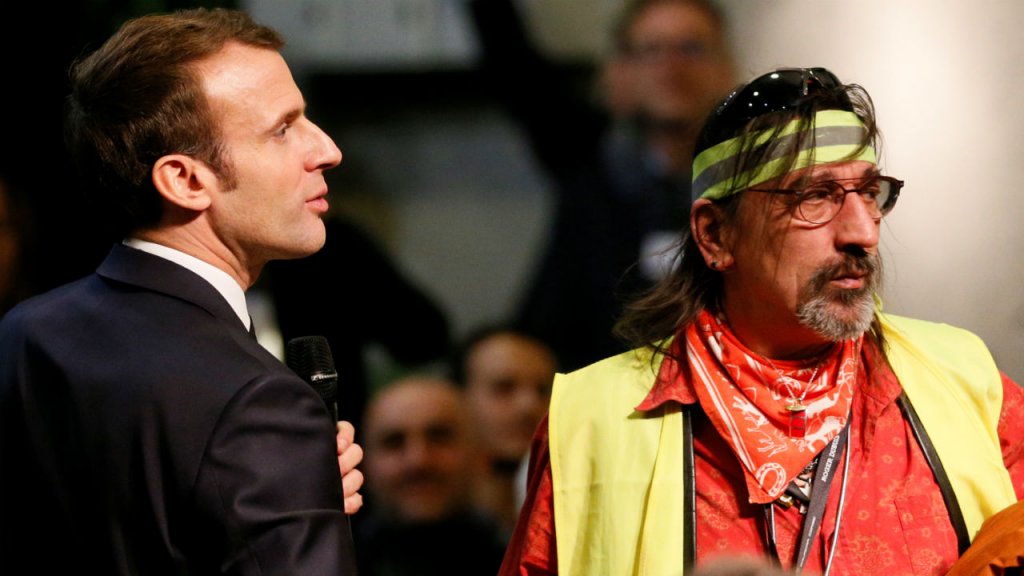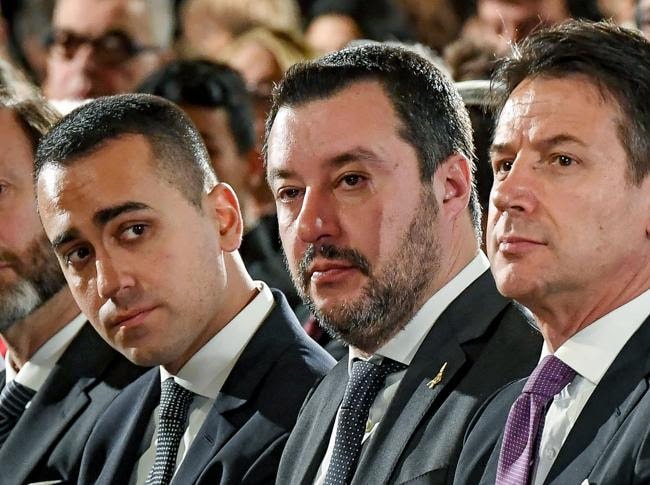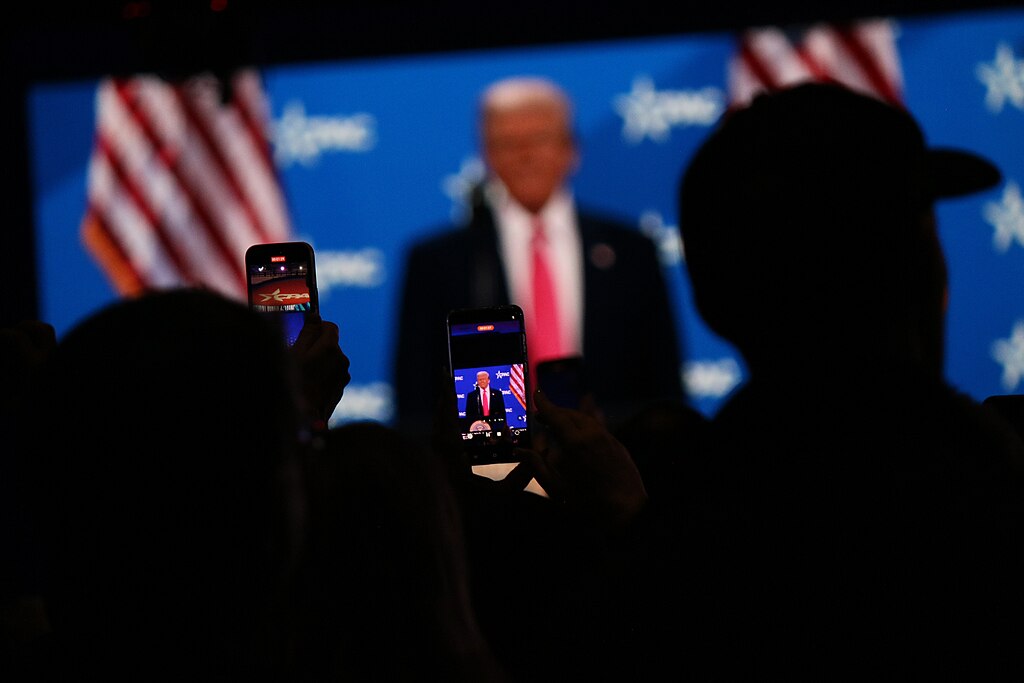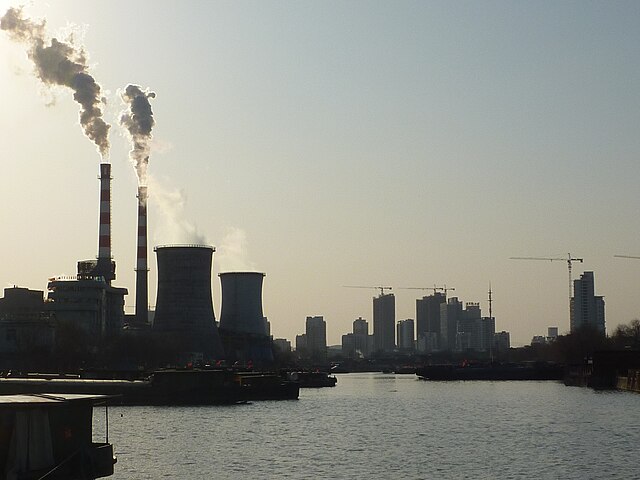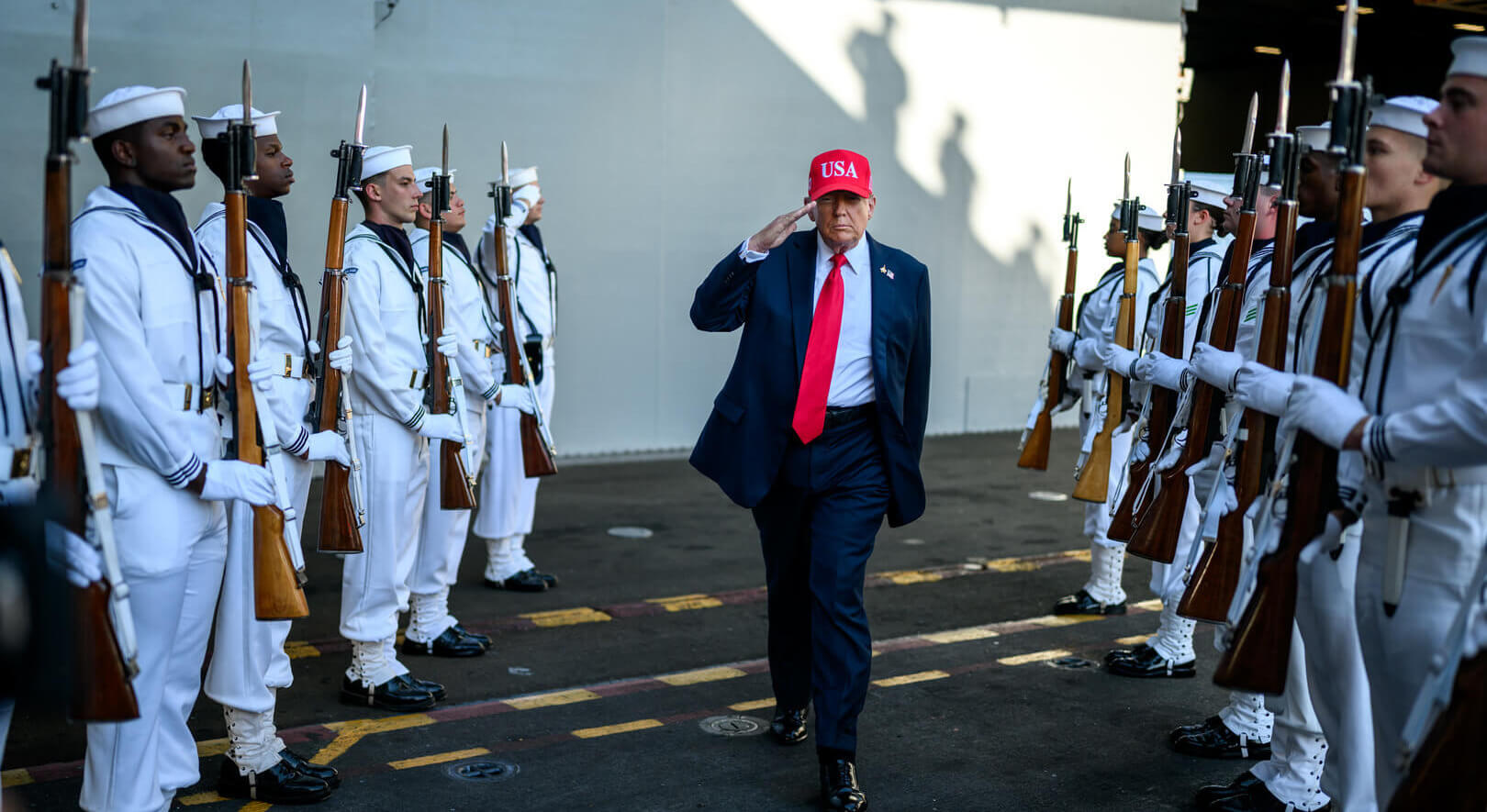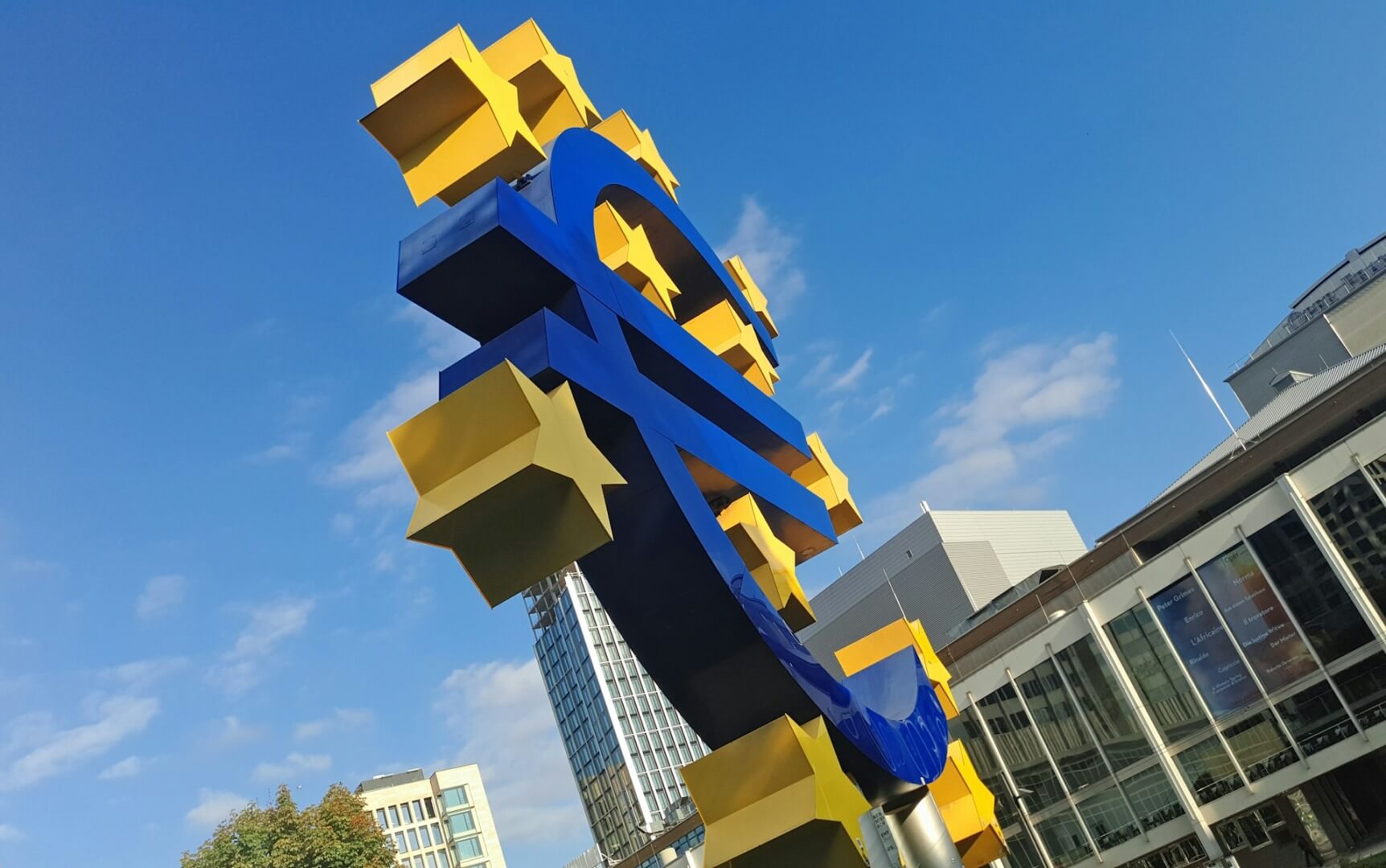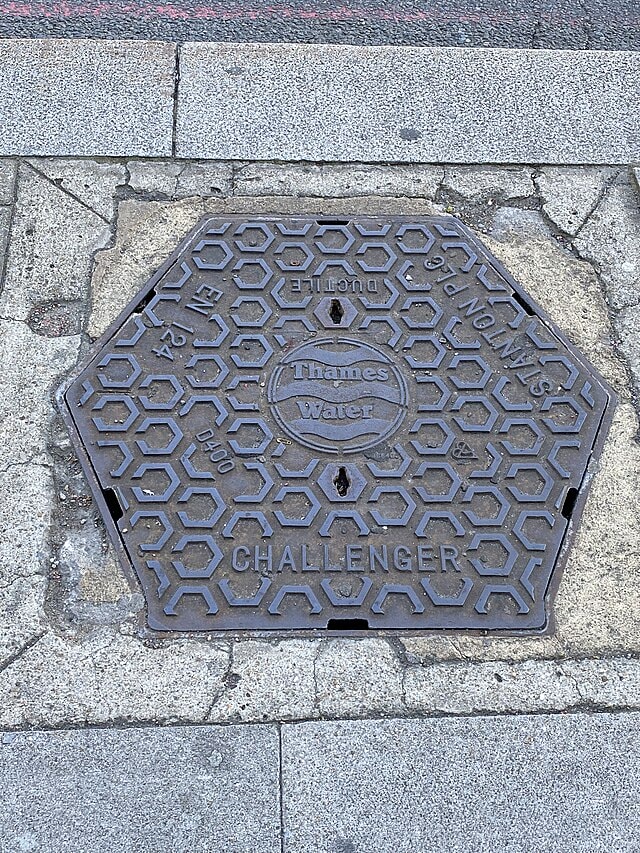Everyone agrees that to reform Europe is a priority. And there’s only one logical way to do it, as proposed by French President Macron. His plan is simply brilliant. Exactly what Europe needs now. But there are many reasons why it will not be adopted – in spite of its brilliance and evident relevance.
It should come as no surprise that the author of this reform plan is French. France has always been the country of logic since Descartes’ days. The sad thing is that logic is not a winner these days with nationalist populism reviving everywhere – including in Germany and Italy and in most of Central and Eastern Europe. There are other reasons too militating against Macron’s plan: Germany’s fixation on austerity, Italy’s anti-establishment government. Italy, as I will show, is the unexpected linchpin – the country that could kill the dream of a United Europe.
First, let’s examine Macron’s plan, and then see why its chances for success are slim. Slim but not totally hopeless: There is an on-going revival on the left, especially with the Greens in Germany and some inspiring figures like Carlo Calenda in Italy.
Macron’s Plan to Reform Europe: Making it a Sustainability Champion
So what is Macron’s plan? As Bloomberg put it, Macron’s goal is to make Europe “fit for a globalized world”. In a landmark speech at Paris’ Sorbonne University in September 2017, he outlined a six-pillar plan (he calls them “keys”) to reform Europe and make it “sovereign, united and democratic”:
For the video of the full speech in English translation, click here:
Macron’s six “keys” are:
-
- Security: Creation of a Joint defense force able to act autonomously but in cooperation with NATO, with a common defense budget and common doctrine to act on; establishment of a European Intelligence Academy; a European Public Prosecutor’s Office against organized crime and terrorism; a European Civil Protection agency to respond to natural disasters;
- Sovereignty: To address the challenge of migration, a “common space” needs to be built through: (a) a European Asylum Office to speed up and harmonize procedures, (b) a European border police that “guarantees strict border management throughout Europe and ensures the return of those who cannot stay”, (c) a broad training and integration program for refugees already in Europe;
- Foreign Policy: Focused on increased overseas aid to address the migration issue at its source – aid to be financed from a tax on financial transactions (FTT to be established following the model of either the existing French or UK tax); a strategic partnership with Africa to address the “common challenges of tomorrow: youth employment, mobility, the fight against climate change, technological change”; this will require priority investments in the education, health and energy sectors
- Sustainable Development – Energy Policies: To address the “ecological transition” (climate change and environmental degradation), it starts with setting a “fair price on carbon, high enough to ensure this transition” and establishing a well functioning European energy market (in practice, a carbon tax levied at the borders of Europe to defend European producers from unfair competition by “countries that do not share the same environmental policies”); it also requires: (a) a European industrial program to “support clean vehicles and deploy common infrastructures so that it is possible to cross Europe without damaging it”, (b) increased food safety and sovereignty and a revised European agricultural policy (CAP) to better meet market price volatility and regional/local needs;
- Support to Innovation – Digital Policies: The digital revolution means Europe “must do everything to have these digital champions, to attract scientific and entrepreneurial talents”, including: (a) create a European Agency for Breakthrough Innovation, “as the United States did with DARPA at the time of the space conquest”; (b) define a regulatory framework to protect data and defend individual and business freedom from tech giants; (c) review our tax systems “to tax without complacency the companies which are implanted outside Europe for the sole purpose of escaping the tax” and to defend intellectual property;
- The Euro Ambition: a “sustainable economic power” – in the areas of energy, digital, space and industry – “can only be built around the same currency”, the Euro; the challenge is to reduce youth unemployment thus saving future generations and making the Eurozone competitive with China and the United States; what this requires: A major overhaul of the Euro with a separate budget for the euro zone financed from the above-mentioned digital and environmental taxes.
He ends his speech with calls to greater solidarity, noting that too much has been done in the name of “responsibility” (see how the Greek debt was handled) and not enough in the name of solidarity – which is key to creating unity among the European peoples. This requires greater efforts in several key areas:
- harmonization of work and business rules: It requires reform of secondment work and social contributions to be paid to the worker’s country of origin; convergence of taxes on business and of minimum salaries;
- A greater push for cultural knowledge at both school and university level, including the creation by 2024 of at least twenty European universities built on a network of universities from several European countries, “setting a path where each of their students will study abroad and take courses in at least two languages”;
- Overcoming the democratic deficit of European institutions: the founding fathers were wrong “to move Europe forward despite the peoples”, leaving obstacles in the way of unification: the Germans won’t accept to mutualize debt across Europe, the French refuse to modify European treaties; to overcome these obstacles, the foundation for a united Europe needs to be rebuilt with the participation of the peoples and not behind their back; that should be the debate in the coming May 2019 elections for the European Parliament – hence the call for transnational lists in European elections “that will allow Europeans to vote for a coherent and common project”.
“Let us not be afraid to have a European debate for the 2019 elections” concludes Macron. “The European Union in 2024 will be gathered around two pillars in my eyes” he says. “The first: the values of democracy and the rule of law. They are not negotiable, they are not “à la carte”. On values, there can not be a two-speed Europe.” Hungary and “illiberal democracies” in Europe should take note.
The second pillar “is the single market that remains the best guarantee of our power, our prosperity, our attractiveness. The simplification work initiated three years ago by the current Commission must be continued and amplified.” But what is needed is a “a simpler, more transparent, less bureaucratic Europe!” European institutions need to be streamlined, the European Commission should have 15 members, not 28.
And in future, Europe should open to the Balkans and not close itself to the U.K. even after Brexit.
A rousing speech that was, arguably, marred by shortcomings that critics were quick to latch on. There was, they said, a lack of detail on the Euro overhaul suggesting Macron expected it would take a very long time to actuate or hard to get Germany to agree to it. And there was a bewildering “laundry list” of things to do, big and small, from the creation of a European Intelligence Agency to a carbon tax levied at the EU’s borders and the creation of “real European Universities” able to award European diplomas.
In short, Macron’s plan, in contrast to Germany’s obsession with austerity, is expansive and designed to appeal to both the left and the greens, calling for:
- More public investment – financed by the eurozone budget;
- Tax finance (FTT);
- Protect EU citizens against social or trade dumping;
- More overseas aid;
- More action against global warming.
In his speech, and on many subsequent occasions, the latest being 24 January meeting with Merkel, Macron has made it clear that he wants Germany and France to lead the push for reform – possibly, as some fear, setting aside smaller countries’ interests and dismissing Italy or Spain. His proposal to reduce the European Commission to 15 members (from the current 28, soon to be 27 with Brexit) further fuels those fears.
Unquestionably, Macron made a strategic mistake when he didn’t try to rally a maximum number of countries behind his proposals. Yet it is an understandable mistake: for decades, the Franco-German “special friendship” has led Europe forward on the road to a “union”.
On the migration issue, he made his other strategic mistake, accusing the new government of Italy of not doing its part anymore.
Macron has his own problems at home with the Gilets Jaunes, though his handling of the situation – starting a national debate with all the mayors of France – seems to be giving good early results. His popularity rating that had collapsed is beginning to inch up, and in the latest poll he stands at 31 percent.
In the photo: | French President Emmanuel Macron stands near a “Yellow Vest” protester as he attends a meeting with local residents in Bourg-de-Peage near Valence, France, on January 24, 2019. Source: Emmanuel Foudrot, AFP
Then there are problems with France’s historic allies. Let’s examine each threat to Europe in turn.
Brexit and Populism: A Return to the Past
EU institutions are battered by populists who want a “Europe of Nations”. That demand was at the heart of Brexit. Simply put: They want to take back national sovereignty, and the dream of a United Europe be damned.
Populists, it is well known, like to exploit people’s emotions, raising anger against immigrants and other hot button issues (like “too much meddling from European bureaucracy”) rather than appealing to their rational mind and proposing constructive solutions.
If populists have their way, they can easily paralyze EU institutions turning the clock back to the system of requiring unanimity in every vote at the European Council (the EU’s highest body since it brings together the 28 European leaders). What is needed to move forward and have people agree on common rules, is a qualified majority. Anything else won’t work.
No European nation on its own is big and strong enough to resist the challenges of globalization. With EU institutions paralyzed, the world’s two superpowers, China and the United States, will have carte blanche to do as they please. China will take over Africa (it has already started). The United States will drop NATO as Trump has repeatedly threatened.
Germany’s Threat to Europe: The Paralyzing Power of Rigid Budgetary Rules
Germany is doubling down on austerity . While the new head of Merkel’s party, the CDU, is her like-minded protégé Annegret Kramp-Karrenbauer, other powerful politicians constrain Merkel. One is the new President of the Bundestag ( the German Parliament) Dr Wolfgang Schäuble, Merkel’s former finance minister and the force behind Germany’s austerity policies; the other is Ralph Brinkhaus, the parliamentary group leader of the ruling CDU/CSU group in the Bundestag and an austerity hawk.
When Merkel and Macron signed a treaty in Aachen (Aix-la-Chapelle) on Tuesday 22 January, quite a few people were scared. Populists, Marine Le Pen first among them, were quick to accuse Macron of an “act that borders on treason”.
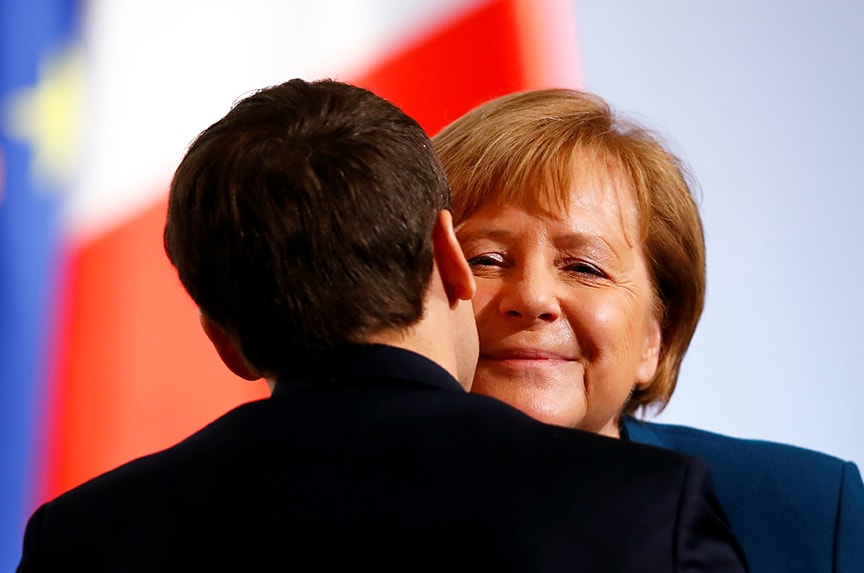
But is it really threatening France’s sovereignty? An examination of the 16-page treaty shows that this is not the case. There is no mention of sovereignty in any part of the treaty. It simply proposes to formalize a previously exceptional practice: once a quarter, a member of each government executive will participate in the council of ministers of the other state.
So is it anything more than just symbolic? As the Atlantic Council put it in its blog, “the question is whether it carries much practical significance”. It is certainly not going to shake up the European order. The cooperation is just a little closer but it doesn’t cover new ground, it’s more of the same – basically an enhanced, updated replique of the Elysées Treaty signed 56 years ago between Charles de Gaulle and Konrad Adenauer.
The only new thing the Aachen Treaty ushers in is enhanced cooperation at the institutional and political level. And that could translate into a stronger push in certain areas, for example, in the area of defense and creation of a European army.
But not in finance: It is clear that Macron avoided including his Euro budget plan.
As the Atlantic Council notes, the most important thing it does is give out a political message. The new treaty arguably “provides, on a very soft basis, a form of non-coercive leadership within the European Union. As a statement of principles and values, it counters both the populist or nationalist trends in Italy, Hungary, the Czech Republic and Poland—as well as those same trends beyond Europe, in the United States, Brazil, and the Philippines, for instance.”
The problem is that it is “on a very soft basis”. Macron surely would have liked something more solid. Issues dividing the two countries continue unaddressed, most importantly what to do with the Euro (including austerity policies) and migration.
The treaty is silent on these key issues. It is silent because Merkel’s hands are tied by her own party, Schäuble and Brinkhaus.
To build Europe, Macron cannot count on Germany. So what about Italy?
Italy’s Threat to Europe: Stabbing France in the Back
The only hope for Macron would have been to forge a strong alliance with Italy to face down Germany and bring the “austerity” stalemate to an end. It’s not happening. Certainly, there were errors on both sides.
The French government’s decision to close its borders to migrants caused bottlenecks in northern Italy. Cross-border incursions by French police seeking to stop migrants in the Alps have enraged the Italians for years, even before the new populist government, led by Luigi Di Maio (5 Star Movement) and Matteo Salvini (the extreme right Lega) came to power.
In the photo: From left to right, Di Maio, Salvini and Conte Source: Ansa
But now Italian-French relations have further deteriorated with a series of diplomatic spats that have are becoming a regular feature in the news. The disputes usually concern migration and Salvini regularly attacks the French on that score. They also concern disputes around energy (usually over Libyan oil resources) and certain sensitive industries like shipbuilding.
The latest this week: Prime Minister Conte went to Davos at the World Economic Forum and said “if France wants to make its seat available on the UN Security Council, let’s talk about it in the European context, if we really want to give importance to this context.” An extraordinary statement that reveals an astounding ignorance of how the UN works and what the political stakes are at the UN Security Council.
Likewise, demonstrating an incredibly poor understanding of both History and the current situation, Deputy Prime Minister Di Maio attacked the French over its role in Africa and its support for the currency, the Franc cfa, in use in 14 francophone African countries. He said France was exploiting Africa, causing poverty and fueling mass migration towards Europe.
What he did was simply repeat without thinking the absurd attacks from African nationalist activists, as shown in this video:
The French reaction was predictable: The Economy Minister Bruno Le Maire told France 24 in Davos that the attacks were “infantile”. Minister for Europe Nathalie Loiseau said she refuses to enter a “stupidity contest” with Rome. Macron remained silent.
In Italy, the local press was quick to debunk Conte’s and Di Maio’s arguments, with the Sole 24 Ore noting that they were really part of the Five Star Movement’s anti-Europe ideology: What Di Maio and Conte are doing, is launch in this way – bashing France’s pro-European government – their campaign for the May elections at the European Parliament.
Internal political motivations replace any vision the Italian government might have had regarding its possible role in Europe. And in so doing, Italy has closed the door on a historic opportunity to ally itself with France and really weigh in and change the course of History in Europe.
An opportunity lost that may never come back.
Especially now that Italy is once again sinking in recession. That will make it difficult, if not impossible, for this government to fulfill its promises, particularly regarding pension reform (too costly) and the new “citizen’s income”, a gift to the poor that could cost upwards of €10 billion. A sum it won’t be able to afford and that, in any case, will do nothing to jump start the economy (very different policies are needed to do that, policies focused on business and not on the poor).
It won’t be the first time that populists don’t deliver on the promises they make. The only hope is that populists do not win as much as they hope at the coming European Parliament elections.
EDITOR’S NOTE:THE OPINIONS EXPRESSED HERE BY IMPAKTER.COM COLUMNISTS ARE THEIR OWN, NOT THOSE OF IMPAKTER.COM


